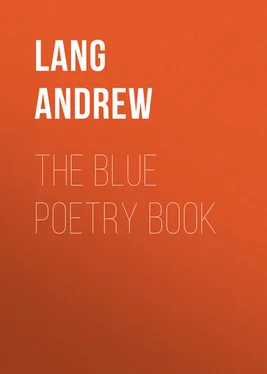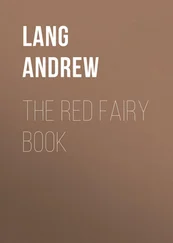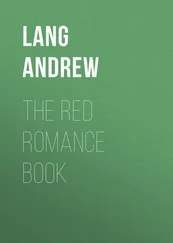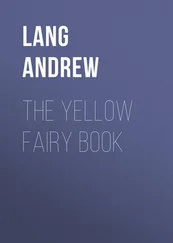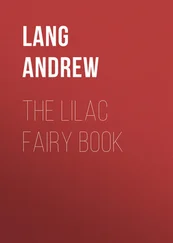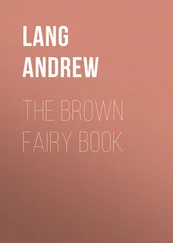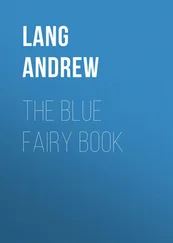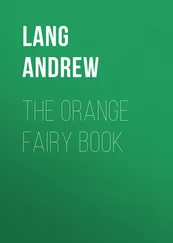Andrew Lang - The Blue Poetry Book
Здесь есть возможность читать онлайн «Andrew Lang - The Blue Poetry Book» — ознакомительный отрывок электронной книги совершенно бесплатно, а после прочтения отрывка купить полную версию. В некоторых случаях можно слушать аудио, скачать через торрент в формате fb2 и присутствует краткое содержание. Жанр: foreign_antique, foreign_prose, на английском языке. Описание произведения, (предисловие) а так же отзывы посетителей доступны на портале библиотеки ЛибКат.
- Название:The Blue Poetry Book
- Автор:
- Жанр:
- Год:неизвестен
- ISBN:нет данных
- Рейтинг книги:3 / 5. Голосов: 1
-
Избранное:Добавить в избранное
- Отзывы:
-
Ваша оценка:
- 60
- 1
- 2
- 3
- 4
- 5
The Blue Poetry Book: краткое содержание, описание и аннотация
Предлагаем к чтению аннотацию, описание, краткое содержание или предисловие (зависит от того, что написал сам автор книги «The Blue Poetry Book»). Если вы не нашли необходимую информацию о книге — напишите в комментариях, мы постараемся отыскать её.
The Blue Poetry Book — читать онлайн ознакомительный отрывок
Ниже представлен текст книги, разбитый по страницам. Система сохранения места последней прочитанной страницы, позволяет с удобством читать онлайн бесплатно книгу «The Blue Poetry Book», без необходимости каждый раз заново искать на чём Вы остановились. Поставьте закладку, и сможете в любой момент перейти на страницу, на которой закончили чтение.
Интервал:
Закладка:
And by came an angel, who had a bright key,
And he open’d the coffins, and set them all free;
Then down a green plain, leaping, laughing they run,
And wash in a river, and shine in the sun.
Then, naked and white, all their bags left behind,
They rise upon clouds, and sport in the wind;
And the angel told Tom, if he’d be a good boy,
He’d have God for his father, and never want joy.
And so Tom awoke; and we rose in the dark,
And got with our bags and our brushes to work;
Though the morning was cold, Tom was happy and warm:
So, if all do their duty, they need not fear harm.
NORA’S VOW
Hear what Highland Nora said, —
‘The Earlie’s son I will not wed,
Should all the race of nature die,
And none be left but he and I.
For all the gold, for all the gear,
And all the lands both far and near,
That ever valour lost or won,
I would not wed the Earlie’s son.’
‘A maiden’s vows,’ old Callum spoke,
‘Are lightly made, and lightly broke;
The heather on the mountain’s height
Begins to bloom in purple light;
The frost-wind soon shall sweep away
That lustre deep from glen and brae;
Yet Nora, ere its bloom be gone,
May blithely wed the Earlie’s son.’ —
‘The swan,’ she said, ‘the lake’s clear breast
May barter for the eagle’s nest;
The Awe’s fierce stream may backward turn,
Ben-Cruaichan fall, and crush Kilchurn;
Our kilted clans, when blood is high,
Before their foes may turn and fly;
But I, were all these marvels done,
Would never wed the Earlie’s son.’
Still in the water-lily’s shade
Her wonted nest the wild-swan made;
Ben-Cruaichan stands as fast as ever,
Still downward foams the Awe’s fierce river;
To shun the clash of foeman’s steel,
No Highland brogue has turn’d the heel:
But Nora’s heart is lost and won,
– She’s wedded to the Earlie’s son!
BALLAD OF AGINCOURT
Fair stood the wind for France,
When we our sails advance,
Nor now to prove our chance
Longer will tarry;
But putting to the main,
At Caux, the mouth of Seine,
With all his martial train,
Landed King Harry.
And, taking many a fort,
Furnished in warlike sort,
Marcheth tow’rds Agincourt
In happy hour,
(Skirmishing day by day,
With those oppose his way)
Where the French general lay
With all his power.
Which in his height of pride,
King Henry to deride,
His ransom to provide
To the king sending;
Which he neglects the while,
As from a nation vile,
Yet with an angry smile
Their fall portending,
And, turning to his men,
Quoth our brave Henry then:
Though they to one be ten,
Be not amazèd!
Yet have we well begun;
Battles so bravely won,
Have ever to the sun
By fame been raisèd.
And for myself (quoth he), —
This my full rest shall be,
England ne’er mourn for me,
Nor more esteem me; —
Victor I will remain,
Or on this earth lie slain:
Never shall she sustain
Loss to redeem me.
Poitiers and Cressy tell,
When most their pride did swell,
Under our swords they fell;
No less our skill is
Than when our grandsire great,
Claiming the regal seat,
By many a warlike feat
Lopp’d the French lilies.
The Duke of York so dread
The eager vanward led,
With the main Henry sped,
Amongst his henchmen.
Exceter had the rear,
A braver man not there, —
O Lord! how hot they were,
On the false Frenchmen!
They now to fight are gone:
Armour on armour shone,
Drum now to drum did groan —
To hear was wonder;
That with the cries they make,
The very earth did shake;
Trumpet to trumpet spake —
Thunder to thunder.
Well it thine age became,
O noble Erpingham!
Which didst the signal aim
To our hid forces, —
When from a meadow by,
Like a storm suddenly,
The English archery
Stuck the French horses.
With Spanish yew so strong,
Arrows a cloth-yard long,
That like to serpents stung,
Piercing the weather, —
None from his fellow starts,
But, playing manly parts,
And like true English hearts
Stuck close together.
When down their bows they threw,
And forth their bilboes drew,
And on the French they flew,
Not one was tardy;
Arms from the shoulders sent,
Scalps to the teeth were rent,
Down the French peasants went, —
Our men were hardy.
This while our noble king,
His broadsword brandishing,
Into the host did fling,
As to o’erwhelm it,
And many a deep wound lent,
His arms with blood besprent,
And many a cruel dent
Bruizèd his helmet.
Gloster, that duke so good,
Next of the royal blood,
For famous England stood,
With his brave brother;
Clarence, in steel so bright,
Though but a maiden knight
Yet in that furious fight
Scarce such another.
Warwick in blood did wade;
Oxford the foe invade,
And cruel slaughter made
Still as they ran up;
Suffolk his axe did ply;
Beaumont and Willoughby
Bare them right doughtily,
Ferrars and Fanhope.
Upon Saint Crispin’s day
Fought was this noble fray,
Which fame did not delay
To England to carry.
O when shall Englishmen,
With such acts fill a pen,
Or England breed again
Such a King Harry?
YE MARINERS OF ENGLAND
Ye Mariners of England!
That guard our native seas;
Whose flag has braved, a thousand years,
The battle and the breeze!
Your glorious standard launch again
To meet another foe!
And sweep through the deep,
While the stormy tempests blow;
While the battle rages loud and long,
And the stormy tempests blow.
The spirits of your fathers
Shall start from every wave! —
For the deck it was their field of fame,
And Ocean was their grave:
Where Blake and mighty Nelson fell,
Your manly hearts shall glow,
As ye sweep through the deep,
While the stormy tempests blow
While the battle rages loud and long,
And the stormy tempests blow.
Britannia needs no bulwark,
No towers along the steep;
Her march is o’er the mountain-waves,
Her home is on the deep.
With thunders from her native oak
She quells the floods below, —
As they roar on the shore,
When the stormy tempests blow;
When the battle rages loud and long,
And the stormy tempests blow.
The meteor flag of England
Shall yet terrific burn;
Till danger’s troubled night depart,
And the star of peace return.
Then, then, ye ocean-warriors!
Our song and feast shall flow
To the fame of your name,
When the storm has ceased to blow;
When the fiery fight is heard no more,
And the storm has ceased to blow.
Интервал:
Закладка:
Похожие книги на «The Blue Poetry Book»
Представляем Вашему вниманию похожие книги на «The Blue Poetry Book» списком для выбора. Мы отобрали схожую по названию и смыслу литературу в надежде предоставить читателям больше вариантов отыскать новые, интересные, ещё непрочитанные произведения.
Обсуждение, отзывы о книге «The Blue Poetry Book» и просто собственные мнения читателей. Оставьте ваши комментарии, напишите, что Вы думаете о произведении, его смысле или главных героях. Укажите что конкретно понравилось, а что нет, и почему Вы так считаете.
